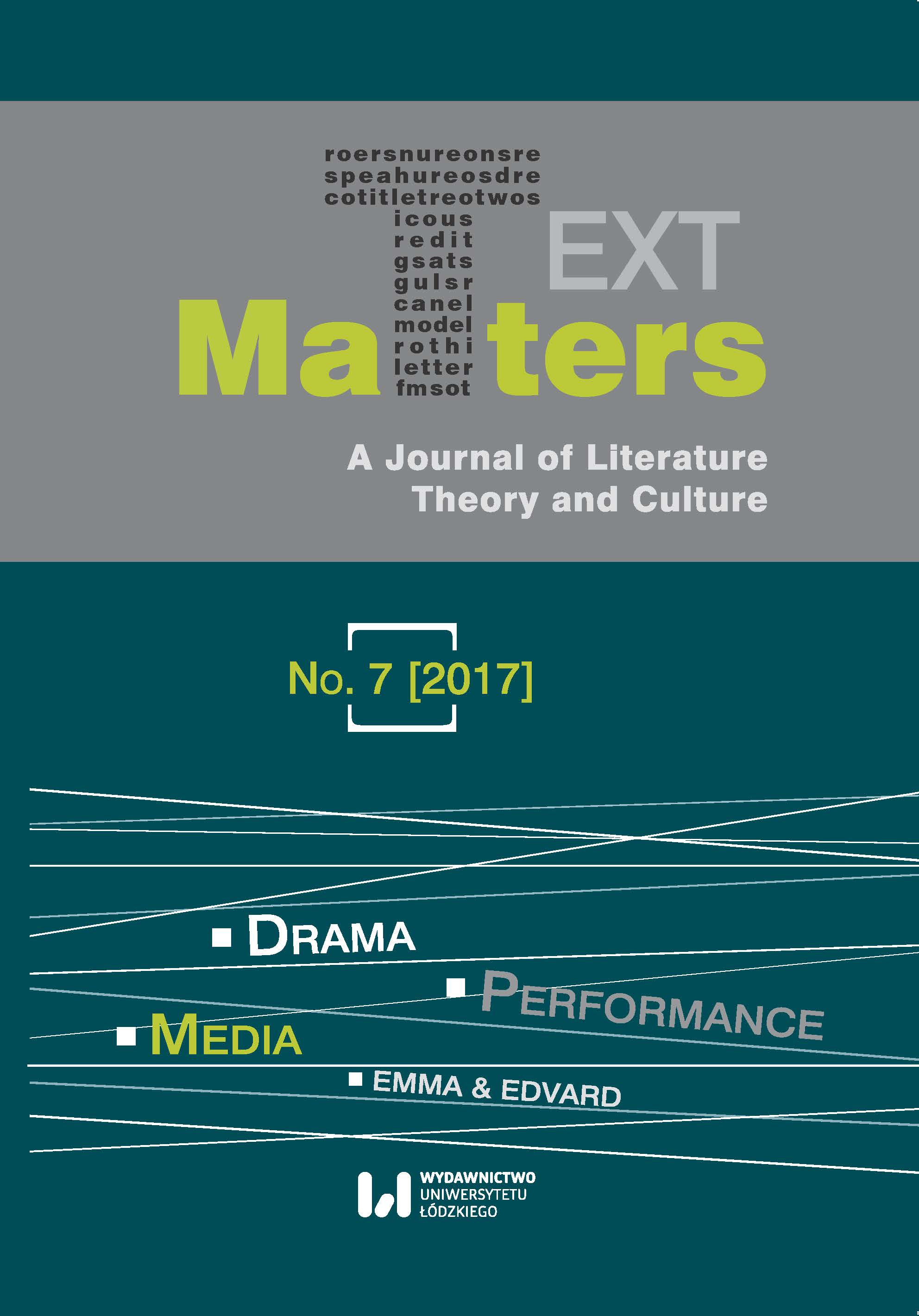“Being Human”: Edward Bond’s Theories of Drama
“Being Human”: Edward Bond’s Theories of Drama
Author(s): David Allen, Agata G. HandleySubject(s): Theatre, Dance, Performing Arts, Studies of Literature, Theory of Literature
Published by: Wydawnictwo Uniwersytetu Łódzkiego
Keywords: Edward Bond; Jung; Holocaust; child development
Summary/Abstract: The playwright Edward Bond has recalled the impact of seeing photographs of Nazi atrocities at the end of World War Two: “It was the ground zero of the human soul.” He argues we need a different kind of drama, based in “a new interpretation of what it means to be human.” He has developed an extensive body of theoretical writings to set alongside his plays. Arguably, his own reflections on “what it means to be human” are based in his reaction to the Holocaust, and his attempt to confront “the totality of evil.” Bond argues we are born “radically innocent.” There is a “pre-psychological” state of being. The neonate does not “read” ideology; it has to use its own imagination to make sense of the world. To enter society, however, the child must be corrupted; its imagination is “ideologized.” Bond claims that “radical innocence” can never wholly be lost. Through drama, we can escape “ideology” and recover our “autonomy.” It leads us to confront extreme situations, and to define for ourselves “what it means to be human.” The terms of Bond’s theory are Manichean (innocent-corrupt, autonomous-ideologized etc.). His arguments are based in the assumption that there is a fundamental “humanity” that exists prior to socialization. In fact, the process of socialization begins at birth. As an account of child development, “radical innocence” does not stand up to close scrutiny. Arguably, however, Bond’s work escapes the confines of his own theory. It can be read, not in terms of the “ideologized” vs. the “autonomous” mind, but rather, in terms of “conscious” and “unconscious.” In Coffee (2000), Bond takes character of Nold on a journey into the Dantean hell of his own unconscious. He does not recover his “innocence,” but, rather, he has to face the darkness of both history and the psyche.
Journal: Text Matters: A Journal of Literature, Theory and Culture
- Issue Year: 2017
- Issue No: 7
- Page Range: 307-329
- Page Count: 23
- Language: English

